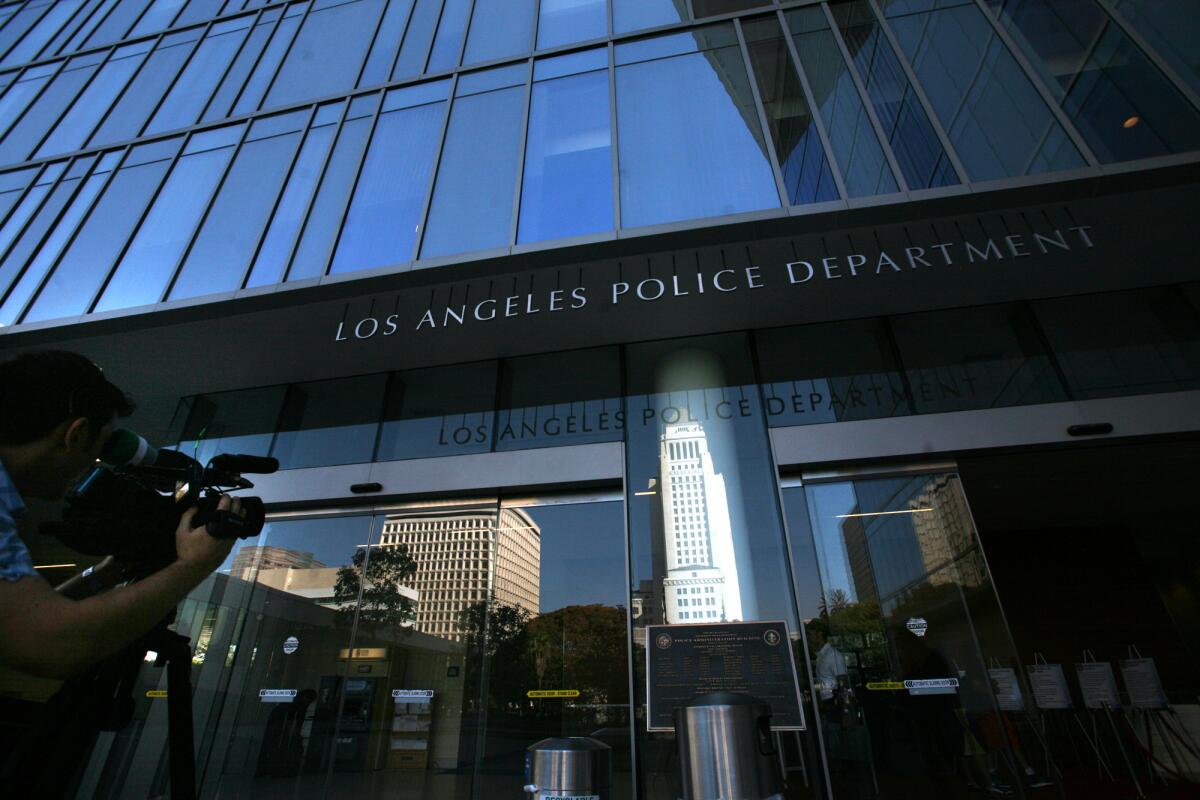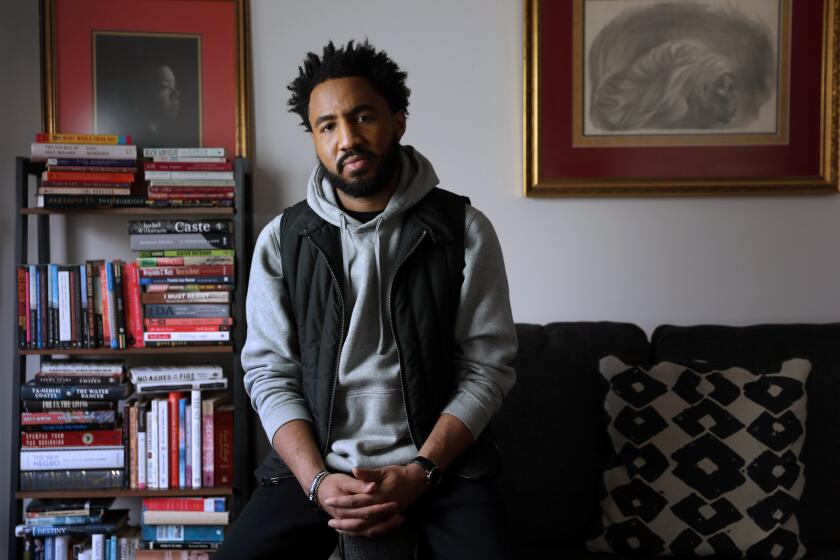Battle brews as LAPD inspector general mulls broad review of officer discipline process

A legal battle is brewing around one of the most secretive aspects of city government — disciplinary hearings for police officers — as the Los Angeles Police Department’s inspector general mulls a broad review of the process and the police union promises to block him at the door.
The looming standoff could shine new light on the administrative process for adjudicating misconduct allegations against LAPD officers at a time of intense scrutiny for police nationwide. It also revives questions about a 15-year-old California Supreme Court ruling that resulted in L.A. and other cities closing such proceedings to the public starting in 2006 — drawing a veil over how and whether officers are held accountable for alleged misconduct.
According to Inspector General Mark Smith, his office is developing plans to begin monitoring police Board of Rights proceedings to identify “inconsistencies” in board decisions, “inequities” in the process and other ways the system might be improved to ensure “just outcomes for all stakeholders.”
Officers go to a Board of Rights if they object to decisions by LAPD Chief Michel Moore and the Los Angeles Police Commission that they have violated administrative policies and deserve to be punished. The board can issue verdicts that override those of Moore and the commission.
Police supporters insist the process, approved by voters three years ago, is fair. But critics say the board too often sides with or goes easy on officers, undermining the only process for rooting out cops who violate administrative policies around excessive force, biased policing and other noncriminal offenses.
Moore complained this summer that the current process “always seems to default in favor of the officer” and prevents him from firing bad cops.
The board that reviews his disciplinary decisions is overly lenient, he says.
Smith said the structure of his proposed review is still being devised, but “may include some in-person observations” of hearings by his staff — which he believes the city charter gives his office the power to conduct.
In response, Robert Rico, general counsel for the Los Angeles Police Protective League, said Smith is welcome to audit the disciplinary process by collecting information on case outcomes, but would face a serious legal fight if he tried to send his staff into the hearings.
Smith’s office answers to the Police Commission, which decides whether officers have broken department policy. Allowing Smith’s staff to sit in on subsequent hearings to determine what punishment, if any, the officers should face would be inappropriate, Rico said — not least because it would be “intimidating” for the officers and the panels hearing the cases.
“This is an officer’s career and his right to due process, and you just can’t have the executioner sitting at the back of the room staring the jury in the eyes and think that something nefarious won’t happen,” Rico said.
Angelenos largely approve of the LAPD, but they also support Black Lives Matter and want to see some funding shifted, a Loyola Marymount study finds.
If Smith does begin sending his staff into hearings, attorneys for the officers will “vehemently object,” Rico said. If Smith persists, they will challenge the inspector general’s presence in court — including by citing a 2006 California Supreme Court ruling that restricted public access to documents related to the discipline of police officers.
The court, in Copley Press Inc. vs. Superior Court of San Diego, did not restrict access to disciplinary hearings, but its ruling was nonetheless interpreted by attorneys in L.A. and other cities to mean that such hearings should be closed given their open discussion of information found in the documents the court deemed private.
Rico said the union’s position is that the Copley precedent precludes not just the public and the press from observing discipline hearings, but also Smith’s staff, even though they are LAPD employees with access to transcripts of the proceedings if the LAPD requests them.
Rico made the same argument in an email to Smith in August 2019, in which he said the presence of Smith’s staff at disciplinary hearings was unnecessary.
“I don’t see the necessity nor justification to physically sit in,” Rico wrote. “It makes no sense from any perspective.”
Smith said his right to sit in on disciplinary hearings is established in the city charter, which gives his office the power to “audit, investigate and oversee the Police Department’s handling of complaints of misconduct by police officers.”
However, Smith has projected less confidence in correspondence with other officials.
In a Nov. 3 email obtained by The Times through a public records request, Smith asked Police Commission President Eileen Decker to issue a special directive for his office to begin monitoring Board of Rights proceedings in person, saying he was making the request on the advice of Assistant City Atty. Carlos De La Guerra, who serves as counsel to the LAPD in City Atty. Mike Feuer’s office.
“It is my opinion that such monitoring must include in-person observation (as the OIG has done in the past), as I do not feel an examination of the entire system would be thorough without it,” Smith wrote.
Why Smith should need an order from the Police Commission to monitor Board of Rights proceedings if he believed the charter empowers him to do so as a matter of law was unclear.
Deon Jones hasn’t protested since he was shot in the face by a police projectile in May. He’s suing L.A. in an effort to ban such weapons at protests.
Richard Tefank, executive director of the Police Commission, said the inspector general already has the authority to monitor Board of Rights proceedings “any time he sees fit,” and “was advised to conduct any review he deems necessary.”
Smith said his staff has attended discipline hearings since the Copley decision came down, but his staff could not recall doing so in more than a decade, since the summer of 2008. He did not have a timeframe for deciding whether the review would go forward.
Smith said his office is already conducting a more limited audit of the outcome of disciplinary hearings since the City Council passed an ordinance last year allowing for all-civilian panels.
More to Read
Sign up for Essential California
The most important California stories and recommendations in your inbox every morning.
You may occasionally receive promotional content from the Los Angeles Times.












